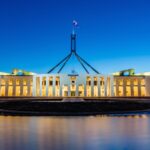A sympathetic committee also recommends that the regulator only accept notifications on clinical issues relating to patient safety.
A Senate inquiry has recommended an overhaul of the notifications process to include limitations on the kind of complaints that AHPRA can receive, measures to avoid supervisory failures, and a call for mandatory reporting requirements to be removed.
The Senate Community Affairs References Committee had been investigating AHPRA’s administration of health professionals’ registration and notifications.
The recommendations were addressed primarily to AHPRA and to the 15 national boards that accredit courses of study, set professional standards, register practitioners and manage notifications about practitioners’ conduct.
Among the 14 recommendations, the committee said the title “surgeon” should be regulated as a matter of priority. This follows an ABC investigation last year into cosmetic surgeons that brought the loose use of the term into the spotlight.
It also recommends that the National Law be reformed to give AHPRA the discretion to refuse low-risk notifications, which should be referred to health practices and services deal with. Notifications that are accepted by AHPRA and the boards should “limited to clinical issues relating to patient safety”.
“The committee was deeply concerned and moved by the stories it has heard regarding the devastating impact of a notification on some health practitioners,” its report says.
“The committee acknowledges that there is a significant amount of stress involved in the notifications process for practitioners. This is unduly exacerbated by a range of issues with the process, including how regulators communicate with parties, a lack of understanding and transparency about the process, and of course, because of protracted timeframes and delays.”
The committee recommended health ministers agree to remove the current mandatory reporting requirements and adopt the model developed by Western Australia.
Currently, health professionals and others must notify AHPRA about a doctor’s conduct if it poses a risk to the public, including if they are concerned about the practitioner’s physical or mental impairment, intoxication while practising, or any significant departure from accepted professional standards, including sexual misconduct.
In WA, health professionals are exempt from these mandatory reporting obligations although they may choose to make a voluntary notification to protect public safety.
The AMA has been pushing for years for the WA model to be adopted.
“Doctors are avoiding seeking treatment for their own health concerns, particularly mental health concerns, out of fear of the consequences,” the association said in its submission to the inquiry. “Ironically, current mandatory reporting law put in place to protect the public is actually more likely to expose it to untreated, unwell doctors.”
The committee also recommended that a notification should only be accepted by AHPRA if it concerned a clinical issue relating to patient safety. Health ministers should consider reforms to enable health practices and services to accept “low risk notifications”, the committee said, while AHPRA and the national boards should be able to refuse them if they fell into that category.
“The sheer volume of complaints being investigated by AHPRA and the national boards is likely impacting their ability to provide a high-quality service ensuring all parties feel heard and supported,” the RACGP said in its submission to the inquiry. “The current notifications system can be extremely stressful for practitioners. It can have severe impacts on practitioner reputation and mental health, even in circumstances where the practitioner is found to be not at fault.”
A framework to identify vexatious complaints, introduced following an earlier inquiry, will have helped to reduce AHPRA and the boards’ burden of complaints, the RACGP said. However, since this type of complaint accounts for less than 1% of notifications received, more support was needed, the college said.
The committee also called on AHPRA to take “urgent and immediate action” regarding supervision of health practitioners. “Supervisors should have a direct point of contact within AHPRA,” the report said, “and this point of contact should be made available prior to any contractual arrangements being made, as well as throughout the entire supervisory period.”
In their submissions to the inquiry, several organisations raised concerns about the way complaints were processed.
“Further improvements can be made to the notifications process,” the RACGP said, “particularly in terms of communication, transparency, timeliness and the impacts of the assessment and investigation process on a practitioner’s mental health.”
The report of the last Senate inquiry into AHPRA, which concluded in 2017,?can be found here, and that of the previous one, which concluded in 2011,?is here.
In its response to the release of the inquiry report, AHPRA said the agency would “consider the recommendations directed to AHPRA and national boards and contribute as requested to the formal Australian government response”.






